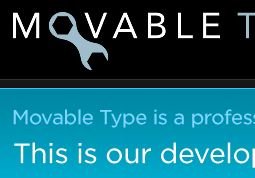WordPress, Movable Type and Why Licensing Matters
 Byrne Reese, the former project manager of the content management system Movable Type and current chairman of the project’s open source spinoff, Melody, penned an article on his blog entitled “How did WordPress Win?” It is an inside look at the “war” between Movable Type and WordPress and how the latter grew to become the dominant CMS on the Web.
Byrne Reese, the former project manager of the content management system Movable Type and current chairman of the project’s open source spinoff, Melody, penned an article on his blog entitled “How did WordPress Win?” It is an inside look at the “war” between Movable Type and WordPress and how the latter grew to become the dominant CMS on the Web.
Reese lays out many factors for this success, including that WordPress was built using PHP and Movable Type using PERL, which proved much more difficult for users to set up, better sales efforts by WordPress’ team and mistakes by Six Apart, the company that developed Movable Type, that accidentally poisoned the community.
However, Reese also points to another issue that, he feels, played a major role in WordPress, along with Automattic, gaining an upper hand: Licensing.
Specifically, Reese singles out the open source nature of WordPress and a licensing debacle in 2004 that confused many Movable Type users and turned them into WordPress users, most never to come back.
Indeed, the Movable Type/WordPress competition is a textbook example of why licensing matters and how good, clear licensing can strengthen your case where poor licensing can sink it.
For evidence of this, one just has to look at my history with the two applications.
My Story
Prior to 2005. I was a Movable Type user, having converted from Graymatter as it began to be abandoned. I loved Movable Type and, though I found the install to be tricky, once it was up and running it was great. A powerful tool that I expanded my use of, starting out with just one category of my site and then using it for every section.
Then, in 2004, the licensing debacle hit. Six Apart tried to create two versions or two licenses of Movable Type, a free one for amateur bloggers with limited needs and paid version that allowed for more blogs and more authors.
However, a lot of questions were raised by this. How did Six Apart define a blog? What is commercial use by their standards? And so forth. Though I was already very active in copyright (this was over a year before the launch of Plagiarism Today), I didn’t have a lot of the answers I needed.
It became clear that Movable Type was not a solid foundation for me moving forward. I didn’t abandon it immediately, but started dabbling with other systems, most notably WordPress, which were truly open source.
And WordPress was what I fell in love with. I loved the ease of installation, the reliability of use and how it seemed to naturally fit my particular needs. So, when I did decide to launch Plagiarism Today in 2005, I chose WordPress as the platform and it’s been the platform of choice for every site I’ve developed since – save one shopping cart site.
I tried WordPress for the licensing but stayed for all the other reasons Reese listed and, even though Melody is open source completely, I don’t think I’m likely to look back.
Why Licensing Matters
When you set up a copyright license you are essentially creating the rules for use. Whether it’s the content on your blog, an application you’re distributing or a song you’ve written, the license tells people what they can and can’t do with it.
The problem is that, if the terms of the license are confusing or if they are constantly changing, the people that try to follow the terms are going to be frustrated, worried and unsure. That makes people not want to use your work, even in the manners you intended.
The Movable Type vs. WordPress “war” wasn’t about “free” triumphing over “paid”. As Reese points out, Movable Type was just as “free” for nearly all users as WordPress is. Instead, it was a triumph of clear, easily understood licensing over ambiguous, changing terms.
This is why services like Creative Commons are so important. They lay out licensing terms in clear, easily understood language that gives people a sense of security and comfort in using the license.
More importantly though, this is why every content creator needs to think about the licensing terms and, most critically, how to avoid confusion and uncertainty.
The most important things with a license is that it be clear, consistent and fair. In 2004, Six Apart messed up the first two components (and some would argue all three) and it cost them dearly.
Bottom Line
Was licensing the only thing that helped put WordPress over the top? Definitely not. WordPress still had and has many advantages over Movable Type. But without that stampede of users in 2004, it most likely would have taken WordPress a lot longer to be come the top CMS and we would have a much more competitive ecosystem today.
Automattic’s dedication to the GPL is legendary, even going to bat against theme developers over it, this gives a lot of comfort to those who use it on their sites, comfort that it will be free, maintained and remain modifiable if needed.
Most people simply don’t have that level of confidence in Movable Type and Six Apart, especially after their recent buyout and that makes a lot of difference when trying to convince people to build their entire online presence with your product at its core.
Want to Reuse or Republish this Content?
If you want to feature this article in your site, classroom or elsewhere, just let us know! We usually grant permission within 24 hours.
